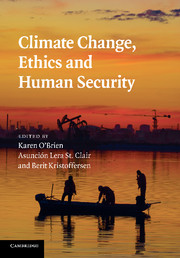3 - Climate change science and policy, as if people mattered
Published online by Cambridge University Press: 01 June 2011
Summary
Introduction
There is something troubling about the bulk of climate change research and policy, particularly when viewed from the position of the Pacific Islands. A number of authors have attempted to articulate their disquiet about the mainstream of climate change impacts research, arguing that it has tended to reduce societies to simple and predictable systems able to be comprehended through large-scale aggregating models, and able to be managed through technical and rational strategies (see Taylor and Buttel, 1992; Proctor, 1998; Rayner and Malone, 1998; Shackley et al., 1998; Agrawala, 2001; Demeritt, 2001; O'Brien et al., 2004; Thrift, 2004). The result is that climate change has been portrayed as an environmental problem with somewhat separable human dimensions, suggesting in turn adaptation actions that favour environmental and technical rather than social and institutional changes. Further, for all the effort that has gone into it, the reduction in emissions that will be achieved by the Kyoto Protocol will do almost nothing to slow the rate of climate change, and it falls far short of the 75% reduction below current levels of emissions that is necessary to avoid ‘dangerous’ climate change in the Pacific Islands and elsewhere. The new round of ‘global horse trading’ that has begun over future emissions targets does not inspire confidence that the necessary cuts in emissions will be forthcoming (Najam et al., 2003: 224).
- Type
- Chapter
- Information
- Climate Change, Ethics and Human Security , pp. 47 - 62Publisher: Cambridge University PressPrint publication year: 2010
References
- 4
- Cited by

